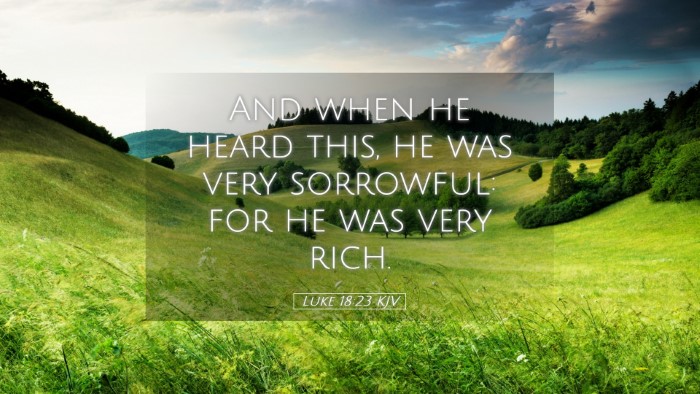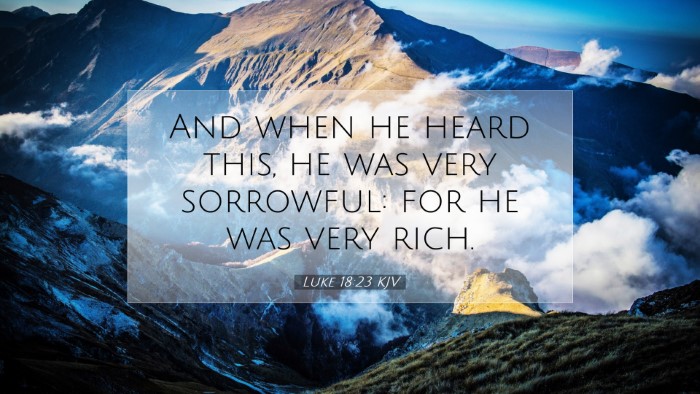Old Testament
Genesis Exodus Leviticus Numbers Deuteronomy Joshua Judges Ruth 1 Samuel 2 Samuel 1 Kings 2 Kings 1 Chronicles 2 Chronicles Ezra Nehemiah Esther Job Psalms Proverbs Ecclesiastes Song of Solomon Isaiah Jeremiah Lamentations Ezekiel Daniel Hosea Joel Amos Obadiah Jonah Micah Nahum Habakkuk Zephaniah Haggai Zechariah MalachiVerse
Luke 18:1 Luke 18:2 Luke 18:3 Luke 18:4 Luke 18:5 Luke 18:6 Luke 18:7 Luke 18:8 Luke 18:9 Luke 18:10 Luke 18:11 Luke 18:12 Luke 18:13 Luke 18:14 Luke 18:15 Luke 18:16 Luke 18:17 Luke 18:18 Luke 18:19 Luke 18:20 Luke 18:21 Luke 18:22 Luke 18:23 Luke 18:24 Luke 18:25 Luke 18:26 Luke 18:27 Luke 18:28 Luke 18:29 Luke 18:30 Luke 18:31 Luke 18:32 Luke 18:33 Luke 18:34 Luke 18:35 Luke 18:36 Luke 18:37 Luke 18:38 Luke 18:39 Luke 18:40 Luke 18:41 Luke 18:42 Luke 18:43

